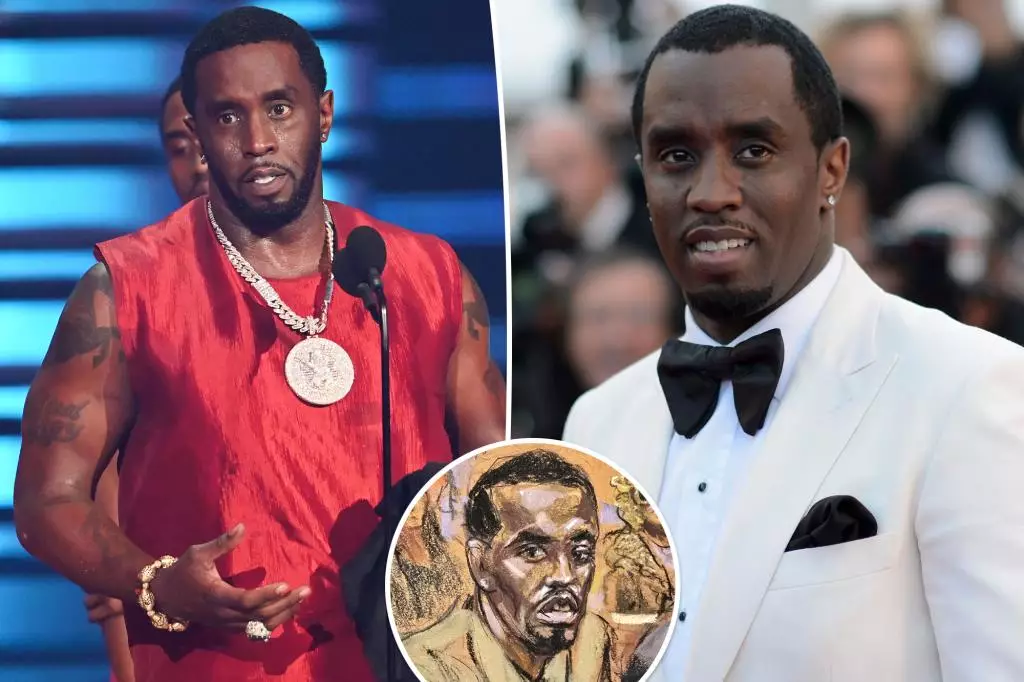The recent legal challenges faced by Sean “Diddy” Combs mark a significant moment in the intersection of celebrity culture, privacy rights, and the #MeToo movement. A court in the Southern District of New York has issued a ruling compelling a woman who accused Combs of sexual assault to disclose her identity, igniting discussions about the balance between anonymity for victims and the rights of the accused. This case, unfolding against the backdrop of broader claims of sexual misconduct against notable figures, raises critical questions regarding justice, accountability, and the implications for those involved.
Judge Mary Kay Vyskocil’s decision serves as a focal point for debates around anonymity in sexual assault litigations. The woman, referred to as Jane Doe in her lawsuit, has the right to privacy, particularly given the sensitive nature of her allegations and the potential repercussions of public exposure. Yet, Vyskocil emphasized that by choosing to file a lawsuit against a public figure, Doe willingly entered a domain where her anonymity could be challenged. The refusal to provide her name could lead to the dismissal of her lawsuit, a decision that speaks volumes about the complexities of legal proceedings in such highly publicized cases.
This ruling appears to reflect a broader legal principle: that anonymity in civil suits may become more difficult to maintain as the severity of the allegations escalates. The court has set a deadline of November 13 for Doe to amend her filing, prompting speculation about the potential consequences of her choices.
The Allegations Against Combs
At the heart of this matter lies a serious accusation from 2004, where the plaintiff alleges that Combs sexually assaulted her and her friend during a party in a New York City hotel room. According to the lawsuit, the environment turned threatening when Combs allegedly made violent threats to ensure compliance with his demands. Combs vehemently denies these claims, asserting through his representatives that there is no truth to the allegations against him—a stance echoed by numerous other denunciations against similar accusations.
This saga forms part of a larger tapestry of allegations against Combs, highlighting a troubling pattern of claims spanning multiple decades, representing a diverse group of alleged victims. The involvement of attorney Tony Buzbee, who represents around 120 alleged victims, underscores the scale of the litigation against the entertainment mogul. Combs, a titan in the music industry, finds his career and legacy at stake amid these unsettling claims.
Beyond the immediate concerns of individual allegations lie deeper societal issues. As the #MeToo movement has evolved, celebrities and public figures have increasingly found themselves under scrutiny for past behavior. Combs’ case exemplifies this; compounded by a recent lawsuit from his former partner, Cassie Ventura, wherein she accused him of rape and physical abuse, which led to a swift out-of-court settlement, the stakes could not be higher.
The implications of Combs’ ongoing legal battles extend beyond personal ramifications; they challenge the entertainment industry’s longstanding culture of silence surrounding sexual misconduct. His recent criminal charges, including racketeering conspiracy and sex trafficking, which have landed him in a harsh detention facility, cast further doubt on his public persona and complicate the narrative surrounding his legacy.
The Path Forward
As the trial date approaches—set for May 5, 2025—anxiety increases surrounding the potential impact of the proceedings on both the individuals directly involved and the broader public discourse. The intersection of fame, privacy, and accountability remains at the forefront, forcing us to confront our societal values and the justice system’s role in addressing accusations of such magnitude.
The challenge lies not only in addressing the specific allegations against Combs but also in considering what these discussions reveal about our cultural norms, the power dynamics within the entertainment industry, and the ongoing struggle for victims of assault to be heard and believed. The path forward requires greater transparency, sensitivity, and perhaps most importantly, a commitment to listening and validating the voices of those who dare to come forward with their stories. Whether through the court’s proceedings or in the court of public opinion, the outcome remains uncertain, leaving a compelling narrative that will continue to unfold in the coming months.

